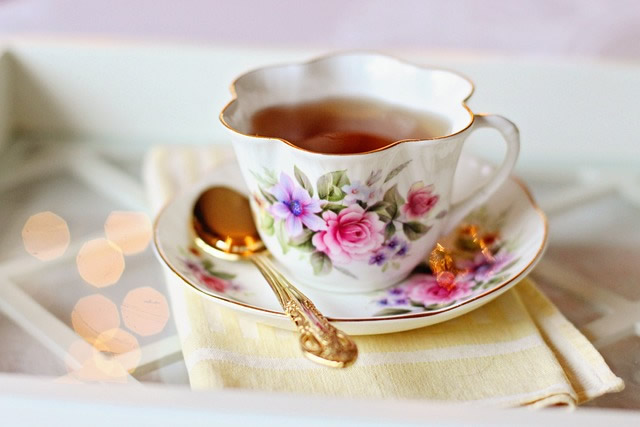今日から「How Britain’s taste for tea may have been a life saver -「英国の紅茶好みは、いかにして命を救ったか?」を読んでいます。

Tea has been many things in its time
紅茶はその時代において様々なものであった、
- a global commodity, a comforting beverage, and even, in the eyes of some Bostonians 250 years ago this week, a symbol of oppressive politics.
世界的な商品、ほっと寛げる飲み物、そして250年前の今週、一部のボストン市民の目には、圧政の象徴と映った。
But one role you might not have attributed to tea is that of a life-saving health intervention.
だがお茶の役割の一つに、命を救う健康介入というものがある。
attribute「属性、特性、特質、~に帰する、~の作だとする」。
In a recent paper in the Review of Statistics and Economics, economist Francisca Antman of the University of Colorado, Boulder,
コロラド大学ボルダー校の経済学者フランシスカ・アントマンは「Review of Statistics and Economics」誌の最近の論文で、
makes a convincing case that the explosion of tea as an everyman’s drink in late 1700s England saved many lives.
1700年代後半のイギリスで、紅茶が一般大衆の飲み物として爆発的に普及し、多くの命を救ったという説得力のある論証をしている。
This would not have been because of any antioxidants or other substances inherent to the lauded leaf.
これは、よく称えられる茶葉に固有の抗酸化物質などのせいではないだろう。
laud「称賛する、たたえる、賛美する」。
Instead, the simple practice of boiling water for tea,
それよりもお茶を飲むために湯を沸かすという単純な習慣が、
in an era before people understood that illness could be caused by water-borne pathogens, may have been enough to keep many from an early grave.
まだ人々が水を媒介とする病原体によって病気が引き起こされることを理解する前の時代に、多くの人々を早逝から守ったのかもしれない。
紅茶はイギリス人にとっては無くてはならないもの、何をするにもまずはお茶を飲んでから・・・というイメージがあります。
今はコーヒー派もそれなりに多いようですが、マグカップになみなみと注がれた紅茶は、人々のテーブルに欠かせないものだと思います。
お茶を飲むには沸き立ての湯が必要で、それが結果的に病気から人々を守った・・・一体どんな話なのか、早速読んでいきましょう!
理由は単純明快!「少ないコストでしっかり楽しく学べるから」。
私自身の経験(高機能でビックリ)をびっしり書いていますので、良かったら読んでみてください。
下のバナーからどうぞ!






